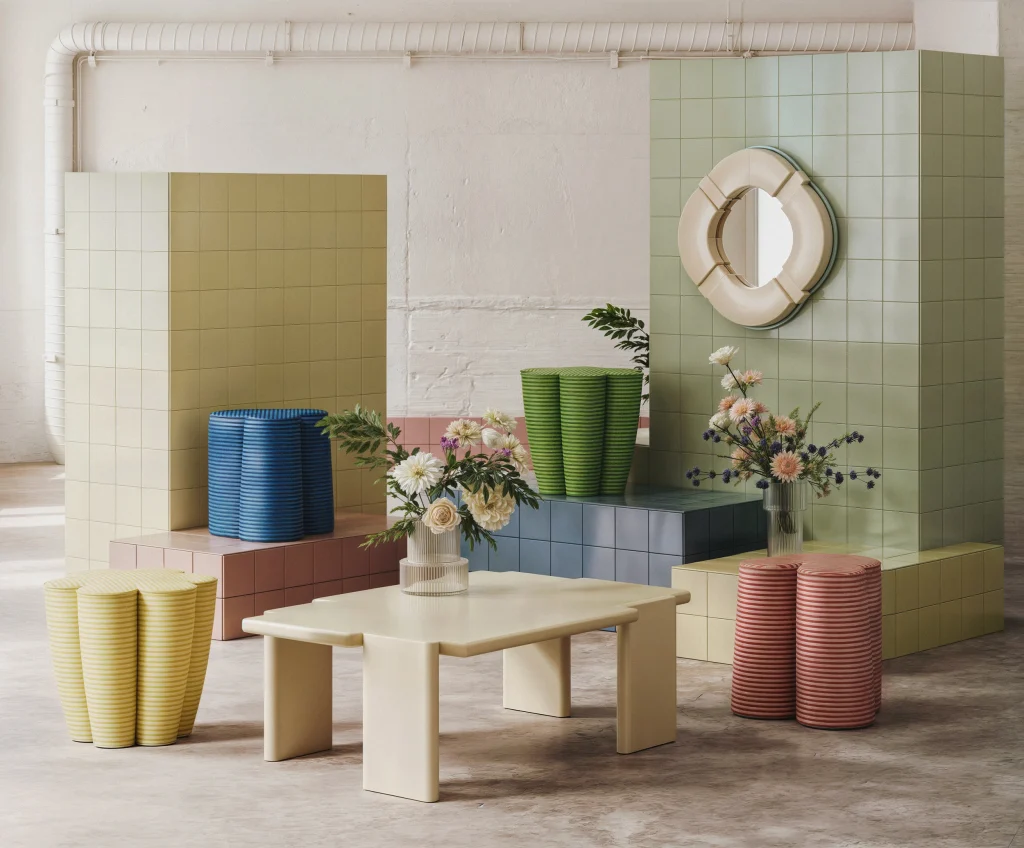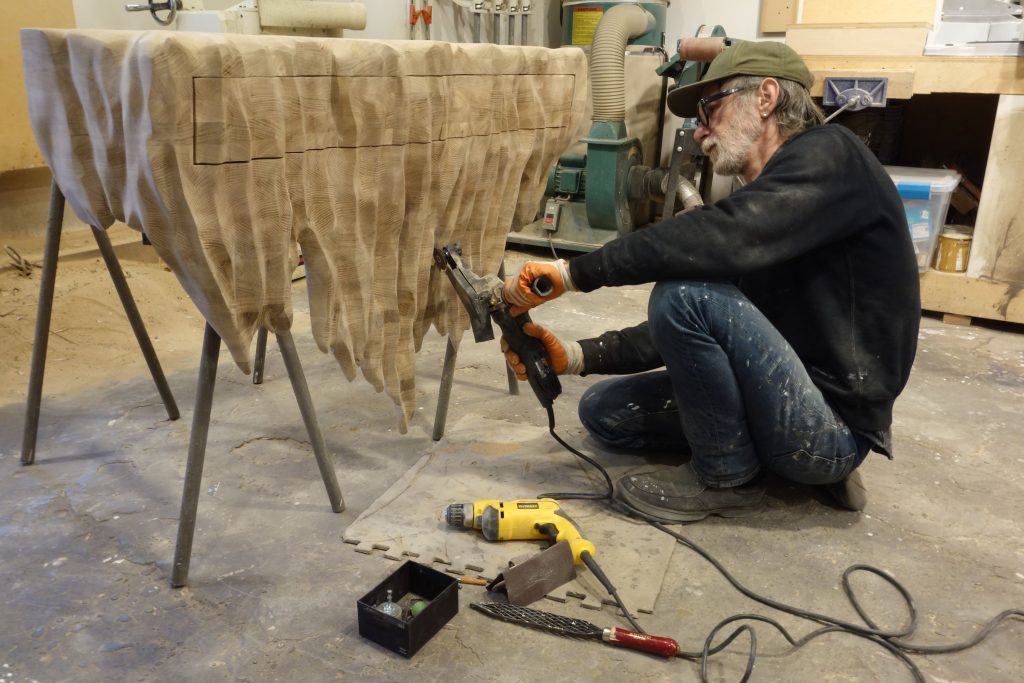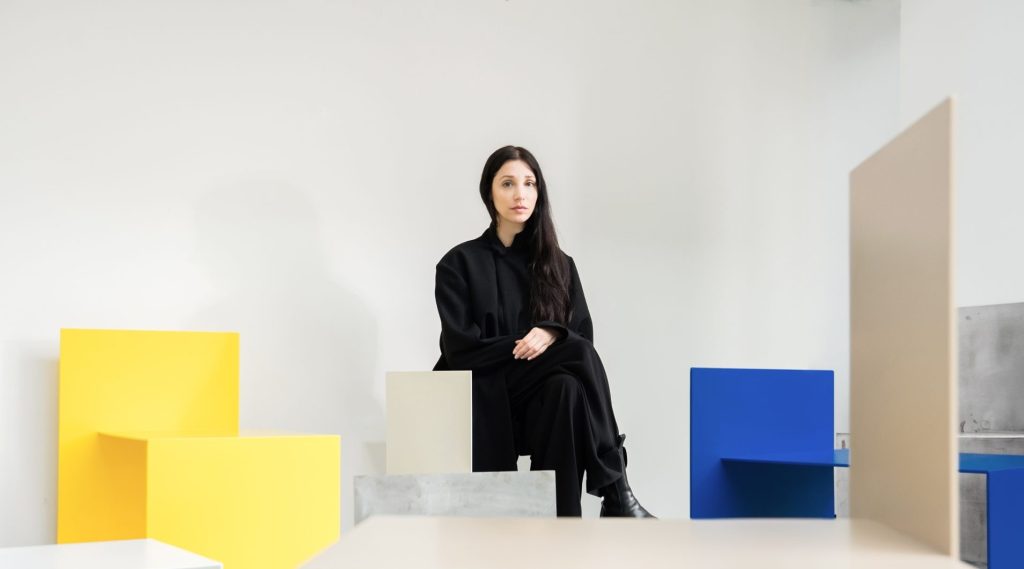
DESIGNER SPOTLIGHT: Martín Azúa, BARCELONA
Although he was born and raised in Basque country, Spanish designer Martín Azúa has always felt that he “found his place” in Barcelona. His journey began as a student at the University of Barcelona, where he graduated with a degree in Fine Arts in 1994; from the moment he arrived, he was struck by the vast geographical and cultural differences between the Catalonian capital and his native land.
“I love this city, which is so very different from the Basque Country — the transition from the cold side of Spain to the more Mediterranean side,” he says. “And let’s say that this has captured me.”
After graduating, Azúa quickly found success as an industrial designer, creating celebrated furniture and lighting pieces for renowned companies such as DDI, Kvadrat, and Majoral. But despite his continued success in that world, he always found most gratification when working on less commercial, more personal projects that gave him the freedom to dream and to imagine; indeed, he describes his best work as “speculative.” One of the pieces that he considers most important, Casa Basica (1999), is a compact, inflatable polyester cube large enough to serve as a human habitat when blown up. Now a part of the MoMA collection in New York, Casa Basica is a radical embodiment of minimalism, taking reduction to the absolute extreme: what if your entire house could fit in your pocket?


Much of Azúa’s work follows a similarly conceptual bent. His ceramic explorations, for example, directly incorporate natural elements such as branches and leaves into a man-made form. Drawing on the element’s environmental and anthropologic significance, Azua ponders the evolving relationship between man and material through beautiful, discursive works.




For his collection Natural Finish, the artist took a series of porous white ceramic vessels to “the middle of nowhere” for an entire year, after which they returned with abstract stain patterns obtained through naturally occurring processes. His work questions what truly constitutes a naturally-inspired decoration; rather than reproduce what he sees in the surrounding world, he allows nature to have its own creative role.




An immense admiration for craft and collaboration lies at the root of all Azúa’s work. For his Magma Rugs, Azúa was fascinated by the work of craftswomen in the Murcia region of Spain, who have historically worked with Esparto, a woven dry grass, to produce traditional Spanish shoes. He invited them to collaborate with him for a recent exhibition for a Cervezas Alhambra, a beer brand in Spain.


“More and more I think it is interesting to work with local manufacturers and reclaim a design with local meaning. Everyone is trying to be famous, to sell all over the world, but I think in the process we are losing something.”
Collaboration also anchors the collection he has made for Adorno, a series of embellished ceramic pieces created with famed ceramist Marc Vidal. “Working with the artisans is very close, very immediate,” Azúa says. “For example, one day I left home and saw the dry leaves fallen in the park. It was Autumn, and I thought, ‘it would be great to make a jar to store dry leaves,’ so I called Vidal, and that same afternoon we started to work on the jar…


“At the end of the week, the jar was standing on my table, ready. This, for an industrial designer, is wonderful.”


Azúa’s appreciation for the handmade extends to his ideas about production, both in terms of speed, scale, and ethics. While he acknowledges that product design has certainly benefited from the capabilities of automation, specifically in the realm of mass production, he is “The work of the artisan does not get valued for what it is, a mastery, a great amount of years of dedication, to perfect one’s ability,” he says. “In these collaborations, the artisans have helped me a lot in solving the piece, not just producing it.” He explains that his work derives from an effort to minimize competition between the handmade and the mass-produced, instead promoting the values of each.




“I am not dogmatic about handicrafts, or against industrial production,” he adds. “My concern is that all these techniques do not disappear, that you have the option to utilize a machine but also to use great ceramists and other artisans. I would feel it as a great loss if all these traditional technological resources were to disappear.”




Interview: Luiza Rabelo, Adorno Editorial
Edit: Emily Nathan, Lizzie Wright, Adorno Editorial





Responses